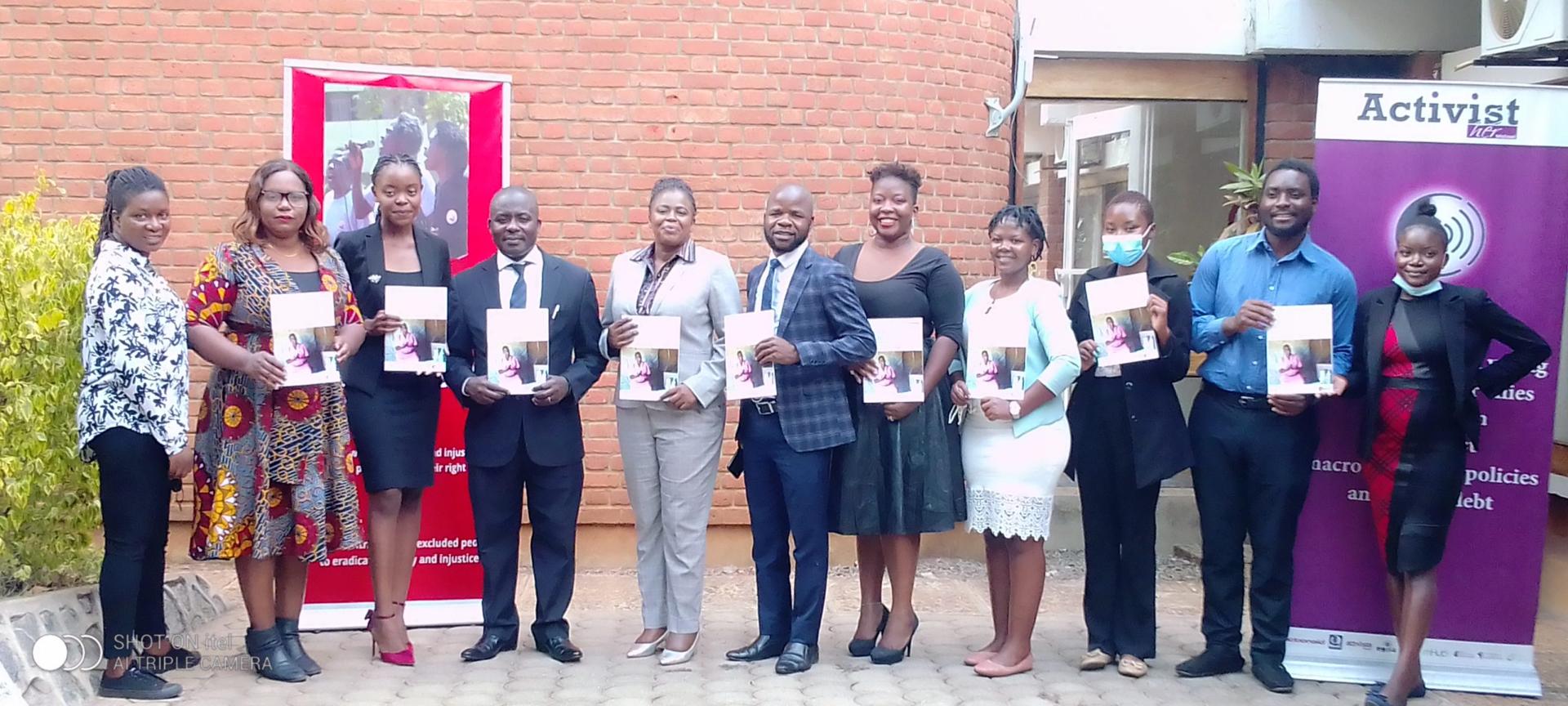Africa-Press – Malawi. The Feminist Macro-Economic Alliance (FEAM) has urged African countries – including Malawi – to review or reverse or reject austerity measures imposed by the International Monetary Fund (IMF) and other Bretton Woods institutions, saying the measures undermine the capacities of governments to deliver quality services to vulnerable groups of people, especially women.
FEAM comprises national and multinational organisations fighting for the economic well-being of women. The alliance adds that austerity cuts, mainly advanced through Public Sector Wage Bill (PSWB) restraints, are negatively impacting education, health and agriculture sectors as governments are unable to recruit workers, among other important things.
FEAM partners echoed these concerns on Tuesday in Lilongwe when ActionAid – a member of the alliance – released findings of its “ground-breaking” research, titled; “The Public Versus Austerity: Why Public Sector Wage Bill Constraints Must End.”
The research has exposed how austerity cuts in just 15 countries have blocked the recruitment of over three million nurses, teachers and other essential public sector workers.
Speaking after the release of the findings, the interim Executive Director for ActionAid Malawi, Rodney Mwaisimba, emphasized that the options Malawi and other countries have are either to review or reverse or reject the austerity policies imposed by IMF and other Bretton Woods institutions.
“We are against the policies. These policies impact negatively on the public and faults government against its own citizens. Government becomes powerless to implement certain policies that are in the interest of the people. As a result, people become dissatisfied with their government and rise up,” said Mwaisimba.
Mwaisimba added that the release of the findings kick-starts a continuing conversation between FEAM partners, Malawi government and Bretton Woods institutions to see if “something which is for the people can be done rather than against the people”.
The release also triggers FEAM and other anti-austerity movements to champion a robust campaign to push for inclusive and gender transformative economies with a strong feminist approach in the delivery of public services in health, education and agriculture sectors.
The alliance aims to overcome this by shining a light on how the currently dominant economic framework for economic management is antithetical to the developmental aspirations of the Malawian society and how it orchestrates inequalities and social injustices, especially for the majority poor that rely on public services for progress and social mobility.
In her remarks, Chairperson of the Budget and Finance Committee of Parliament, Gladys Ganda, said she is shocked with the findings of the research, saying public services are at the core of democratic societies founded on human rights, the rule of law and social solidarity. She noted that poor public service delivery– exacerbated by austerity cuts–results in serious violations of people’s rights.
“Therefore, I am committing myself to take action to engage my fellow parliamentarians and to provide effective oversight role to the executive arm of government, in particular the Ministry of Finance to safeguard the legal duty of government in respecting, protecting and fulfilling people’s human rights. We need to follow up and monitor that the Malawi Government makes right macro-economic policy choices and decisions that can enhance effective public service delivery,” said Ganda.






